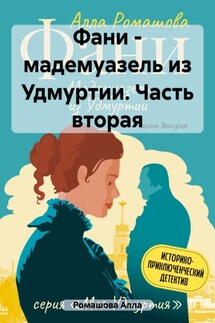The Murder of Roger Ackroyd / Убийство Роджера Экройда - страница 2
The Ferrars only came to live here just over a year ago, but a halo of gossip has surrounded Ackroyd for many years past. All the time that ralph Paton was growing up to manhood a series of lady housekeepers presided over Ackroyd’s establishment, and each in turn was regarded with lively suspicion by Caroline and her cronies. It is not too much to say that for at least fifteen years the whole village has confidently expected Ackroyd to marry one of his housekeepers. The last of them, a redoubtable lady called Miss Russell, has reigned undisputed for five years, twice as long as any of her predecessors. It is felt that but for the advent of Mrs Ferrars, Ackroyd could hardly have escaped. That – and one other factor – the unexpected arrival of a widowed sister-in-law with her daughter from Canada. Mrs Cecil Ackroyd, widow of Ackroyd’s ne’er-dowell younger brother, has taken up her residence at Fernly Park, and has succeeded, according to Caroline, in putting Miss Russell in her proper place.
I don’t know exactly what a ‘proper place’ constitutes – it sounds chilly and unpleasant – but I know that Miss Russell goes about with pinched lips, and what I can only describe as an acid smile, and that she professes the utmost sympathy for ‘poor Mrs Ackroyd – dependent on the charity of her husband’s brother. The bread of charity is so bitter, is it not? I should be quite miserable if I did not work for my living.’
I don’t know what Mrs Cecil Ackroyd thought of the Ferrars affair when it came on the tapis. It was clearly to her advantage that Ackroyd should remain unmarried. She was always very charming – not to say gushing – to Mrs Ferrars when they met. Caroline says that proves less than nothing.
Such have been our preoccupations in king’s Abbot for the last few years. We have discussed Ackroyd and his affairs from every standpoint. Mrs Ferrars has fitted into her place in the scheme.
Now there has been a rearrangement of the kaleidoscope. From a mild discussion of probable wedding presents, we had been jerked into the midst of tragedy.
Revolving these and sundry other matters in my mind, I went mechanically on my round. I had no cases of special interest to attend, which was, perhaps, as well, for my thoughts returned again and again to the mystery of Mrs Ferrars’s death. had she taken her own life? Surely, if she had done so, she would have left some word behind to say what she contemplated doing? Women, in my experience, if they once reach the determination to commit suicide, usually wish to reveal the state of mind that led to the fatal action. They covet the limelight.
When had I last seen her? Not for over a week. her manner then had been normal enough considering – well- considering everything.
Then I suddenly remembered that I had seen her, though not to speak to, only yesterday. She had been walking with ralph Paton, and I had been surprised because I had had no idea that he was likely to be in king’s Abbot. I thought, indeed, that he had quarrelled finally with his stepfather. Nothing had been seen of him down here for nearly six months. They had been walking along, side by side, their heads close together, and she had been talking very earnestly.
I think I can safely say that it was at this moment that a foreboding of the future first swept over me. Nothing tangible as yet – but a vague premonition of the way things were setting. That earnest tête-à-tête between ralph Paton and Mrs ferrars the day before struck me disagreeably.











